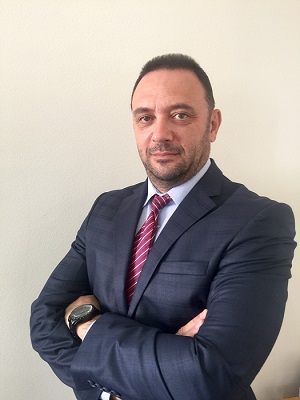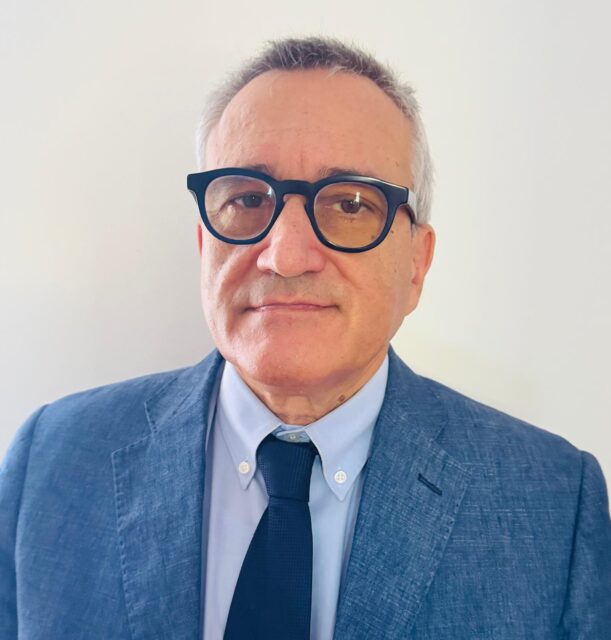The Vice-Presidents
The Vice-presidents support the President in his/her responsibilities, and substitute him/her in cases of the President’s absence. They coordinate with the Working Group Chairs, the Secretariat and all Members in order to propose common actions for consideration by the Assembly.
The President and the Vice-Presidents are nominated from amongst high level representatives of WAREG Members for a term of two years, which may be renewed. Their mandates are assigned to the institution (regulatory entity) which they represent.

Dimitar Kochkov
Board Member, EWRC, Bulgaria
Read bio

Pál Ságvári
Vice President, MEKH, Hungary
Read bio

Konstantinos Tsimaras
Board Member, RAAEY, Greece
Read bio
Working Groups
WAREG activated four thematic Working Groups about the emergent themes ongoing in Europe´s Water sector:
- Key Performance Indicators (KPIs)
- Tariffs
- Drinking Water Directive (DWD)
- Urban Wastewater Treatment Directive (UWWTD)
Working Group on KPIs
WAREG’s 2023 report on KPIs identified 425 performance indicators in use across the network—valuable for national oversight but impossible to benchmark internationally because definitions diverge. The KPI WG therefore aims to filter that universe into a “WAREG Common Indicators” suite that any regulator can calculate with comparable methodology.
The questionnaire was circulated for members in Q1 2025.
Webinars and the assistance of WAREG´s Secretariat for the participants to the WG will smooth data submission, while a workshop in late 2025 will let members review results before publication in 2026.
Preliminary results will be presented at the European Forum on the Regulation of Water Services (4th EFRWS) on December 4, 2025, and the final report published in 2026.
Available only for Members – Discover more
Working Group on Tariffs
Over the next months the Tariffs Working Group (WG) will revisit and expand WAREG’s 2019 benchmark report on tariffs, issuing an updated Report on Water and Wastewater Tariffs that captures how inflation, energy prices and social‑protection schemes have reshaped pricing across Europe. Work starts with an updated questionnaire aligned with the original survey structure but enriched by a new sections about charges and affordability. Responses will be consolidated and discussed on online workshops/meetings in order to get a comparative data set covering average bills, tariff structures and affordability.
A final report is expected by April 2026.
Working Group on the Drinking Water Directive (DWD)
The revised Drinking Water Directive 2020/2184 (DWD) introduces, among other things, risk‑based safety planning, stricter materials approval and new rights to information. To map where members stand, the DWD WG is rolling out a structured survey—covering transposition status, risk‑assessment methods, leakage targets, consumer‑information tools and social‑access measures. Replies will feed a state‑of‑implementation report that among other benchmarks how regulators allocate roles among health, environment and local authorities, and flags emerging challenges such as material in contact with water and leakages.
Interim findings and developments shall be presented in the Athens General Assembly in June 2025.
The full report is slated for publication by 2026.
Working Group on the Urban Wastewater Treatment Directive (UWWTD)
Revisions to the Urban Wastewater Treatment Directive 2024/3019 (UWWTD) introduce quaternary treatment for micro‑pollutants and require an Extended Producer Responsibility (EPR) scheme that channels at least 80 % of incremental costs to pharmaceuticals and cosmetics producers. Building on an externally commissioned study, the UWWTD WG will:
- Map EPR models already used in municipal‑waste streams, assessing financial flows, governance arrangements and deposit‑return mechanisms.
- Draft recommendations for integrating EPR into national tariff frameworks, ensuring transparency and polluter‑pays compliance.
A preliminary briefing will be shared with members at the June´s 2025 General Assembly in Athens; the consultant’s preliminary work will be unveiled at the 4th EFRWS six months later. The WG will then translate the study’s findings into regulatory guidance notes on tariff design and performance incentives ahead of the 2026 reporting cycle.
Another mission foreseen in this WG is to continue the study on the potential economic impacts of the recast UWWTD.








